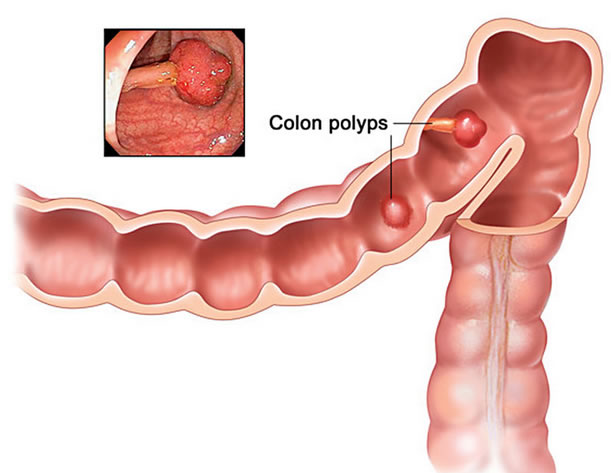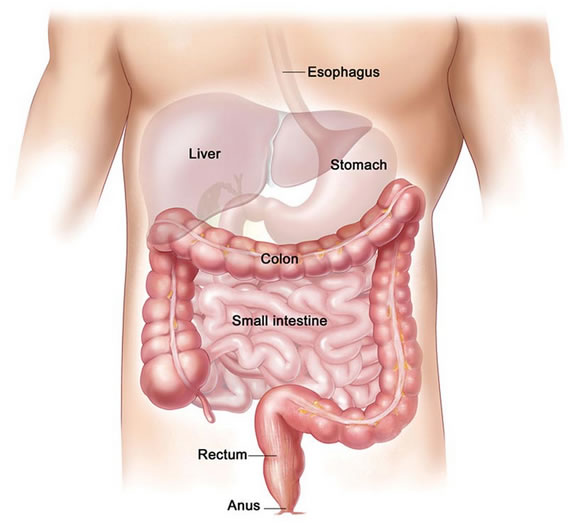![]()
Definition of colon cancer: Cancer that forms in the tissues of the colon (the longest part of the large intestine). Most colon cancers are adenocarcinomas (cancers that begin in cells that make and release mucus and other fluids).

Signs and symptoms
The symptoms and signs of colorectal cancer depend on the location of tumor in the bowel, and whether it has spread elsewhere in the body (metastasis). The classic warning signs include: worsening constipation, blood in the stool, weight loss, fever, loss of appetite, and nausea or vomiting in someone over 50 years old. While rectal bleeding or anemia are high-risk features in those over the age of 50, other commonly described symptoms including weight loss and change in bowel habit are typically only concerning if associated with bleeding.
Cause
Greater than 75-95% of colon cancer occurs in people with little or no genetic risk. While some risk factors such as older age and male gender cannot be changed, many can. A high fat, alcohol or red meat intake are risk factors for colorectal cancer as is obesity, smoking and a lack of physical exercise. Approximately 10% of cases are linked to insufficient activity. The risk for alcohol appears to increase at greater than one drink per day.
Inflammatory bowel disease
People with inflammatory bowel disease (ulcerative colitis and Crohn's disease) are at increased risk of colon cancer. The risk is greater the longer a person has had the disease, and the worse the severity of inflammation.In these high risk groups both prevention with aspirin and regular colonoscopies are recommended. People with inflammatory bowel disease account for less than 2% of colon cancer cases yearly. In those with Crohn's disease 2% get colorectal cancer after 10 years, 8% after 20 years, and 18% after 30 years. In those with ulcerative colitis approximately 20% develop tumors within the first 10 years.
Genetics
Those with a family history in two or more first degree relatives have a two to threefold greater risk of disease and this group accounts for about 20% of all cases. A number of genetic syndromes are also associated with higher rates of colorectal cancer. The most common of these is hereditary nonpolyposis colorectal cancer (HNPCC or Lynch syndrome) which is present in about 3% of people with colorectal cancer. Other syndromes that are strongly associated include: Gardner syndrome, and familial adenomatous polyposis (FAP) in which cancer nearly always occurs and is the cause of 1% of cases.

